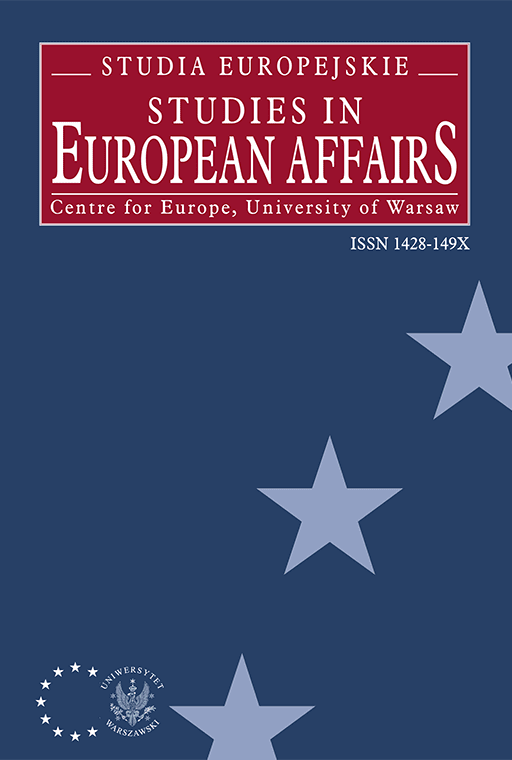
ISSUE: 4/2007
- Volume 44
- Number 4
- 2007
Subscribe NEWSLETTER
Studia Europejskie –
Studies in European Affairs
ISSN: 1428-149X
e-ISSN: 2719-3780
License
Articles published in the journal are under a Creative Commons Attribution – Non Commercial – No Derivatives 4.0 International License
Polityka Unii Europejskiej w zakresie zrównoważonego udziału kobiet w politycznych strukturach decyzyjnych (część 2)
UE policy towards a gender balance in political decision-making (part 2)
Abstract
The study focuses upon women’s participation in political decision-making in the European Union. Together with creation of the EU also European policy of equal opportunities for women in relation to men reached a new stage of development, evolving considerably: from only economic and social dimension to political one. Along with creating valuable political climate promoting higher female participation in political decision-making bodies, activities undertaken by the European Union include a number of specific actions and initiatives, mainly implemented in the form of recommendations addressed to Member States, regarding adoption of appropriate measures, policies, guidelines, etc. This resulted in development of a policy, for the needs of which a broad set of legal and institutional instruments was created, a pronounced goal of which was to ensure gender parity, including in the field of power wielding. The effect of the EC/EU efforts aiming at attainment of more balanced women’s participation in wielding political power is seen as a new attitude emerging as regards female political participation. This way, this formerly under-appreciated issue has been raised to one of the most important questions in the context of gender parity. This new attitude manifested itself in propagation of two extremely important principles: parity-based democracy and gender mainstreaming.
Language: Polish
Pages: 81-113
How to Cite:
Harvard
Barburska, O. (2007) "Polityka Unii Europejskiej w zakresie zrównoważonego udziału kobiet w politycznych strukturach decyzyjnych (część 2)". Studia Europejskie – Studies in European Affairs, 4/2007, pp. 81-113.